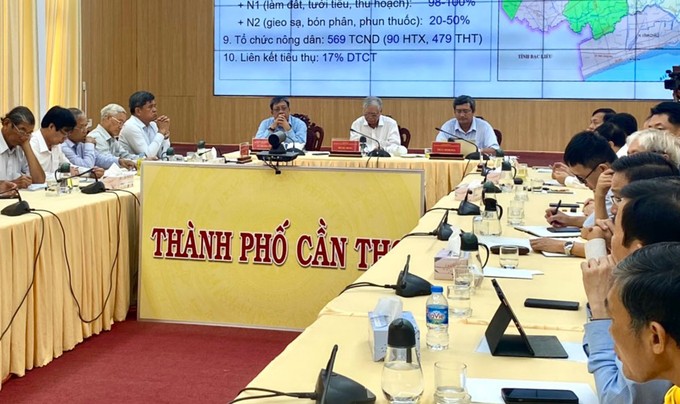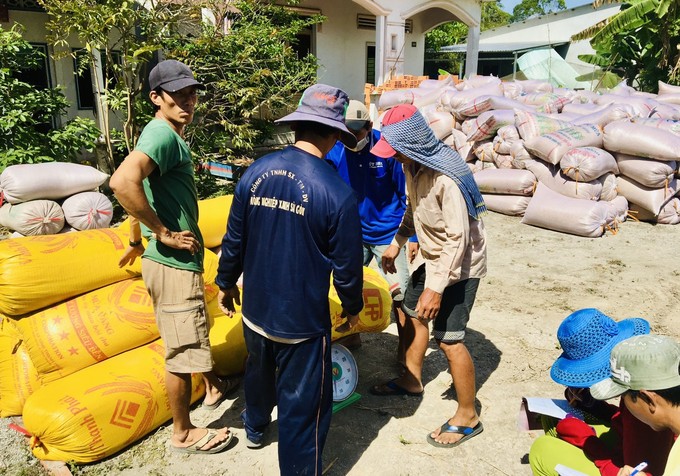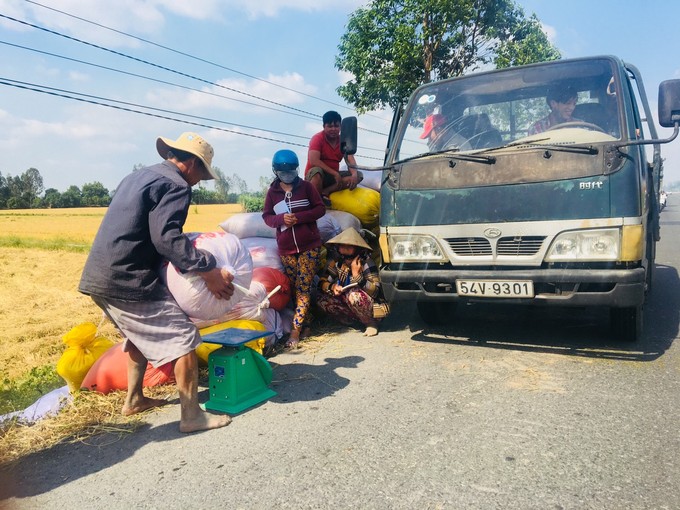Appropriate policies needed for harmonized interests between farmers, businesses
For the development of the government's large paddy field in the Mekong Delta, harmonized benefits between farmers and businesses are important; therefore, it needs appropriate policies and other factors.

The workshop on developing sustainable links in the rice value chain was jointly held by the Coordination Office for Agriculture and Rural Affairs in the Mekong Delta under the Ministry of Agriculture and Rural Development, the School of Public Policy - Rural Development and the People's Committee in Can Tho City today in Can Tho City.
Deputy Minister of Agriculture and Rural Development Tran Thanh Nam, representatives from the Vietnam Rice Sector Association; businesses and organizations in the rice industry chain in the Mekong Delta.
According to the Vietnam Rice Industry Association, policies, scientific and technical advances, and capital directly and indirectly affect the purchase of rice in the Mekong Delta and the relationship between farmers, cooperatives, traders, enterprises, distributors and consumers also have an impact on the benefits of farmers and businesses.
Farmers’ rice will be distributed through the distribution channel. Accordingly, traders will help sell 49 percent of total rice in the region, while cooperatives 32 percent, milling factories more than 12 percent and rice processing and export enterprises more than 6.5 percent. Meanwhile, the direct consumption channels of cooperatives include businesses accounting for nearly 61 percent, milling factories accounting for more than 22 percent and traders accounting for more than 16 percent.

At the workshop, engineer Vo Quoc Trung from the Agricultural Extension Center in Soc Trang Province talked about the results of the investigation on the role of traders in the rice consumption chain. Accordingly, no farmers have so far contacted businesses directly but brokers. Specifically, rice growers sell rice through consumption channels including agricultural cooperatives (accounting for 5-7 percent) and local brokers (90-93 percent). Agricultural cooperatives and intermediaries will directly work with businesses for export and domestic consumption. Farmers also sell their rice to drying or milling establishments but traders also help farmers connect with these establishments which sell rice for domestic buyers.
Traders act as a bridge, an indispensable link in the current consumption chain, said engineer Trung. Without traders, the province's 2.1 million tons of rice is hardly consumed quickly. Currently, the project of large fields is at risk of destruction as farmers take advantage of sowing seeds and have the mentality of selling early when rice prices are high.
Businesses need to consider maintaining contracts signed with farmers when rice prices increase or decrease, each party bears 50 percent in this part. It is necessary to harmonize the interests of farmers and businesses to develop large fields, said engineer Vo Quoc Trung.

Chairman Huynh Van Thon of the Board of Directors of Loc Troi Group agreed with engineer Vo Quoc Trung's opinion, especially in the context of implementing the project ‘Sustainable development of 1 million hectares specializing in high-quality rice cultivation and low emissions associated with green growth in the Mekong Delta until 2030’
Vice Principal Tran Minh Hai of the School of Public Policy and Rural Development said that the present rice chain in the Mekong Delta has seen the participation of many intermediaries. Among them, traders or barn owners, are people who clearly understand the chain. Businesses prefer to buy rice through traders because it helps businesses feel less stressed about spending capital because they do not have to advance money to farmers for a long time (2-3 months) while farmers prefer to sell to traders because they can get money immediately after sell their agricultural products.
The government or responsible agencies should encourage traders to voluntarily gather into groups and clubs to exchange experiences and access training content and technical guidance in preservation, transportation, and processing with the aim of ensuring quality, food safety and hygiene, said Vice Principal Tran Minh Hai.
According to Director Le Duc Thinh of the Department of Cooperative Economics under the Ministry of Agriculture and Rural Development, rice value chain links have improved, with more diverse models and more sustainable models. However, the scale of area, output, and number of farmer households participating in the association are still small. The scale of association of businesses and cooperatives is not as large as expected while not many cooperatives and businesses have linked. Worse, linkage between cooperatives and businesses is not sustainable resulting breach of contracts.








